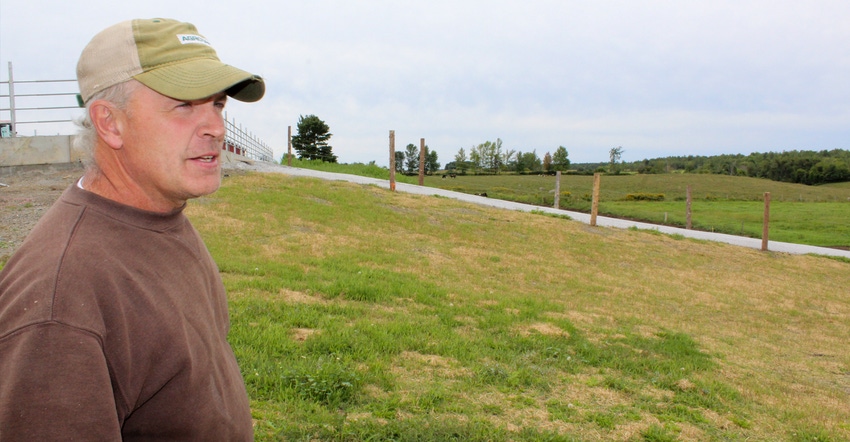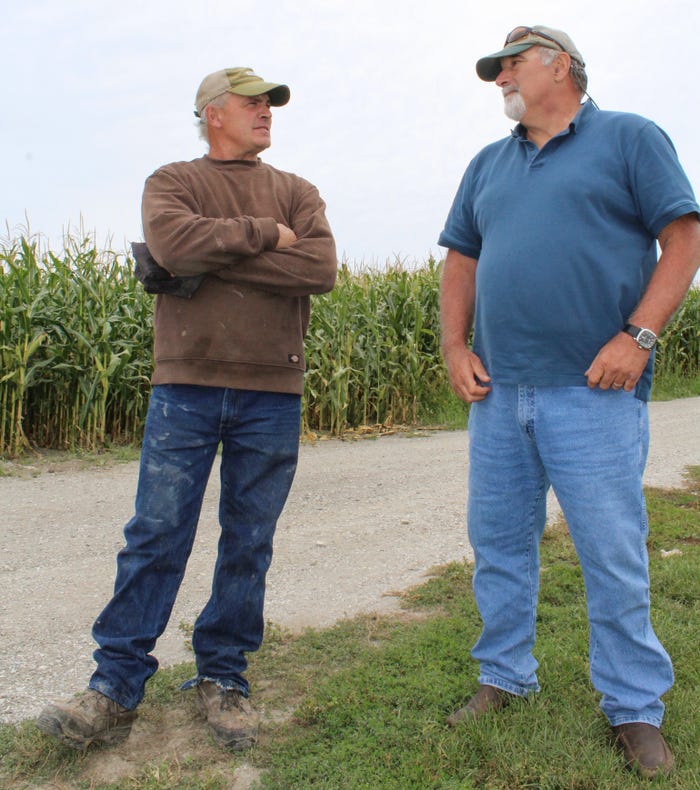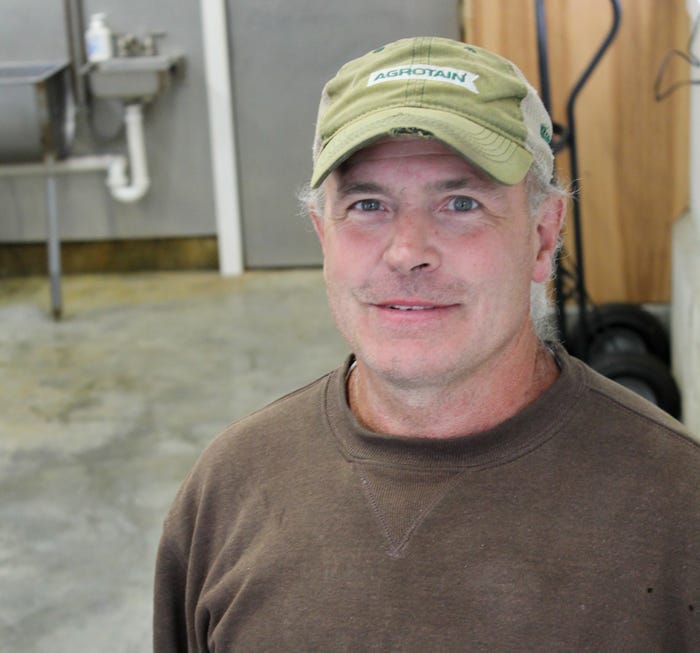October 19, 2018

Vermont's small farms have gotten a pass on most environmental laws, but not anymore. The state's two-year-old Required Agricultural Practices (RAPs) now apply to all but the smallest farms.
The RAPs are designed to protect Vermont's waterways, but they’re also forcing many dairy farmers to make painful financial decisions.
Dairy farmers such as Mark Vosburg of St. Albans, Vt., are carefully going over their finances to see if they can afford improvements. Because Vosburg’s unlined manure pit is no longer certified by the Vermont Agency of Agriculture, he'll have to replace it with a bigger, more expensive system if he wants to keep milking cows. He's chosen to do that, if he can scrape together the money.
"You need to keep the infrastructure up to date; otherwise you'll be done and the farm will be worth just the land. There will be a shrinking pool of possible buyers," Vosburg says.
Money to help
Fortunately, there is government grant money to help dairy farmers like Vosburg, who has a 145-head herd on the farm where he has worked all his life.
He's looking at a $617,000 above-ground slurry store that will have to replace some cropland, with the manure pumped uphill to the pit.
Vosburg has $357,000 from the Natural Resources Conservation Service (NRCS) Environmental Quality Incentives Program and $200,000 from the state to put toward a new manure handling system. But he has $61,000 in cost-share to come up with. That's a big chunk of money for a small dairy in the middle of the worst dairy financial crisis in decades.
So, Vosburg has applied for a Vermont Housing and Conservation Board Water Quality Grant of $40,000. If he gets it he'll end up paying $20,000, plus any cost overruns, which he can also help pay for with his labor.
"If I get the grant, it's a $600,000 improvement to the farm, that's how I look at it. If no grant, it's on hold until we find more funding. Nothing is going to be signed unless I get the grant," he says.
 PIT PLANNING: Tony Kitsos (right), University of Vermont Extension Farm Viability Program, has been helping Mark Vosburg plan and put together funding for a new manure pit.
PIT PLANNING: Tony Kitsos (right), University of Vermont Extension Farm Viability Program, has been helping Mark Vosburg plan and put together funding for a new manure pit.

The RAPs cover infrastructure such as barnyards and silage leachate containment, but manure handling is generally the biggest problem, especially for smaller farms that normally stack their manure. Expensive manure pits are now about the only game in town.
"Stacking pads are now only allowed on state-approved sites, but switching to a pit would mean a whole new manure-handling system," says Tony Kitsos of the University of Vermont Extension Farm Viability Program. "And you have to have long-term storage because of the state's ban on winter spreading. That puts you right into some costly manure storage structures."
Decision time for small dairies
Kitsos says the RAPs will bring about 450 more farms of all types under water quality regulation.
"This is a group of farms that by and large haven't had a lot of experience with the state and NRCS dealing with regulation," he says. "Now they do."
The regulating agencies are generally helpful, Kitsos says.
"If a farm is willing to fix things, they are willing to help them make progress and won't issue a violation. As long as the farm is moving toward a solution, they'll work with you," he says.
But farmers must juggle their own time frames, funding and changing agency standards as well as their own finances. Kitsos says these farmers are now asking Extension for help with planning, resources and negotiating regulations.
They have several big questions to answer, he says:
• What is their budget, including their equity position, loans and cash flow?
• How would a new loan fit into their current finances?
• How could the improvement generate new income?
For most capital expenditures, farmers calculate how much they will increase milk production and income.
"But manure pits, improvements in barnyard and silage leachate runoff, they cost tens of thousands of dollars and not a dollar of it goes into your bottom line," he says. "Plus, they probably will add an expense, such as new equipment or hiring a custom operator to spread manure. You're thrown into an expensive situation that's difficult to see where the savings are going to come from."
Older farmers have to weigh the value these improvements will have on their farm and whether adding debt will make it more appealing for the next generation to take over.
"You either work longer or sell your cows," Kitsos says.
 PLANNING FOR TOMORROW: Finding money to replace old infrastructure on the farm is difficult but it’s essential to the future of Mark Vosburg’s farm.
PLANNING FOR TOMORROW: Finding money to replace old infrastructure on the farm is difficult but it’s essential to the future of Mark Vosburg’s farm.

Vosburg is hopeful young farmers are ready to take over idle farms, but they are balking at spending the money to bring them into environmental compliance.
For him, though, so far it's worth it.
"If we can't keep the infrastructure up, the state will come in and say you can no longer have cows here," he says. "So, if we don't keep up the infrastructure, the next generation is doomed."
Harlow writes from Vermont.
About the Author(s)
You May Also Like




